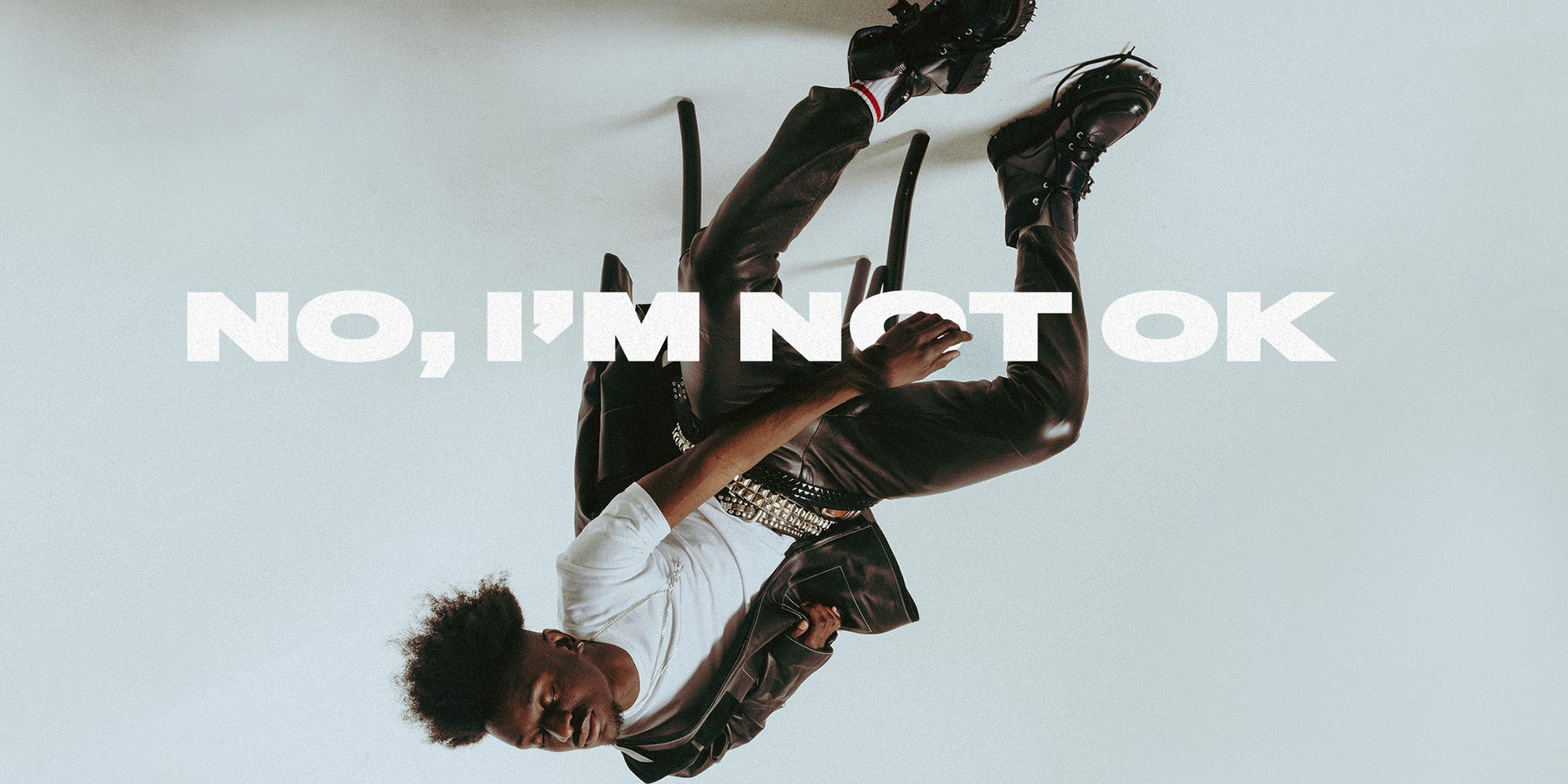Jay Way is an Afro-Dutch hip-hop artist who has been making waves with his fourth release, an EP called No, I’m Not OK. It’s his first release with a label (Curb Records) and rolls out with two eye-popping videos. Keen to know more, Afropop’s Banning Eyre reached Jay Way in Amsterdam. Here’s their conversation
Jay Way, nice to meet you. How are you?
I'm all right, sir. How you feeling?
Very well. You are in one of my favorite cities. Amsterdam is near and dear to my heart.
Oh? You've been here?
I have. Not recently. But in the past a few times and I always enjoyed it tremendously.
That's cool. When was that?
I was there in 2004 or 2005 showing a film that we had made in Mali about the Festival in the Desert. It was part of a film festival in Amsterdam. You probably don't know our radio program, Afropop Worldwide, but we've been introducing Americans to sounds from Africa and beyond for over 30 years. These days, we’re very interested in meeting young artists like you, so thanks for taking time to talk.
I'm honored. Let's do it.
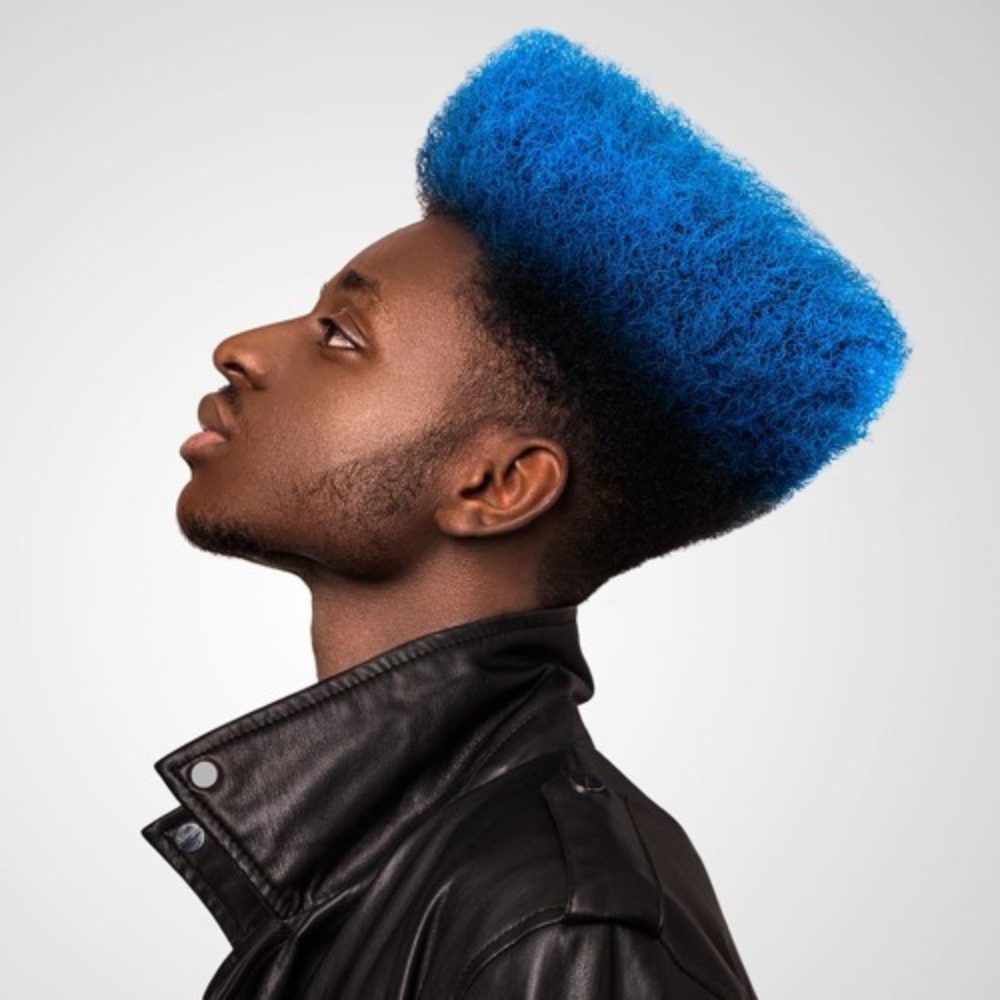
I've only started listening to your music, and I have seen your two recent videos, which are very striking. But let's start with your back story. How did you become an artist?
I was born and raised here in Amsterdam. I grew up with my dad being a DJ, so I was schooled in a lot of genres growing up. I always had a huge fascination with pop music. The culture that I grew up in was very multicultural. We all shared a big love for hip-hop music. I'm a big fan of pop music too, but I really, really love hip-hop . I'm sure when you came to Amsterdam you would have noticed that there's an infatuation with American culture. And definitely hip-hop culture has influenced the whole world around here.
If I'm not mistaken one of your parents is from Ghana.
Both of my parents are Ghanaian. They met here in Europe. And that's how I came.
You mentioned your multicultural community. I know that there are a lot of Surinamese people in Amsterdam. In Afropop’s early days, we did programs about Surinamese kawina music. I believe my colleague traveled to Amsterdam to research that. Was that community part of your mix?
Definitely. They were colonized by the Dutch, so you do see a lot of that in the country. We also have a lot of people from Morocco, a lot of people from Turkey, the Antilles, other Caribbean islands. The Netherlands played a big role in history I would say.
Definitely. Some parts more distinguished than others…
Exactly. exactly. Not all things I could be proud of.
Well, I guess that's true for most of us. We certainly know the feeling over here... But back to you. Tell me how you started making music.
The first day of high school, I had a classmate who introduced himself to me. We sat next to each other. It’s the first day of high school, and you try to organize your little gang. So this guy Justin sat next to me, and he said, “O.K., Jeff is your name. What's your MC name?” "My MC name?" "Yeah, your rap name.” “What do you mean, rap name? I don't rap. I can't rap."
And he was like, “Yo, what do you mean? Anybody can rap." And then he introduced me to freestyling. So we would freestyle during lunch break, even during class. And I fell in love with it immediately. And from there I began writing lyrics, looking up words in the dictionary, finding easy words to rhyme with, that type of stuff. And that kind of developed.
Did you always rap in English?
I think my first rap was in English.
Do you ever rap in other languages, Dutch, or maybe an African language?
Dutch definitely. I made some attempts and Dutch as well. But I just always loved the English language. But now that I think of it, my first verse probably was in Dutch. But then a year after that, I actually moved to the Bronx, New York. I went there to stay with family out there, and when I came back… I didn't rap when I was in New York because I was like, "Woah, this is culture shock. I'm in a different country. This is all so new to me." And when I came back to the Netherlands, I wanted to get back to rapping, but I was so immersed in American culture. I just didn’t feel like rapping in Dutch. Everything was automatically in English.
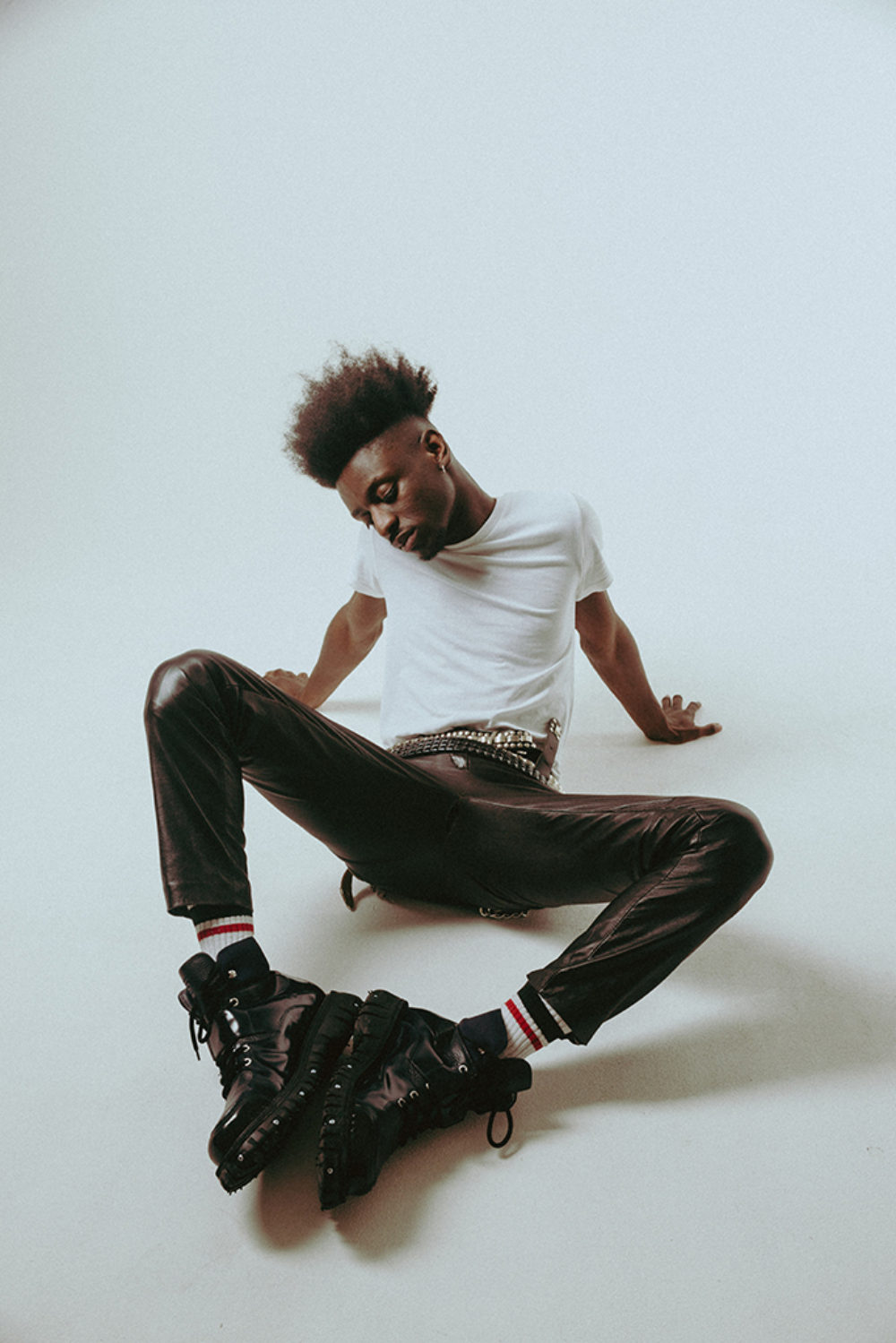
It is kind of the signature language for hip-hop, although there is a lot of interesting hip-hop in African and other languages these days. So what year were you born?
I was born in the ’90s. I'll let you figure out the year.
Well, that's good enough for me. So you're going to high school in the early 2000s. Was that when you went to the Bronx?
Yeah. That was during high school.
So how did this passion for rapping turn into a career with recordings and videos like we’re seeing today?
At first it was a little hobby. When I came back from the States, I started to write more music. And then the school actually asked if I wanted to perform in a show. They had an Easter show at school and they allowed me to do my little rap thing on stage. And I fell in love with it immediately. "Yo, this is amazing. I can actually perform what I just wrote down. This is a different energy. This is something that I want to continue doing."
But nobody would book me. So I made sure to force myself onto open mics and when I would attend these open mics, people would say, "Love your stuff. You got CDs, demos, stuff online?" O.K., people actually want to hear this stuff. So I got to work on that. I realized that I’ve to got a have a project so that when I perform these open mics, I have something I can refer people to. I started working on the project, and everything just grew organically. Before I knew it, I started having less time for school work.
That will happen.
I remember being in math class and practicing my autograph. I was just so in love with making music. I just couldn't picture myself doing anything else. So going to school, my motivation was low, because I didn't want to do anything relating to school. At a young age, I just had a huge imagination. I said, “I'm just got to finish school to keep my parents satisfied. But my heart is not in it. I want to be making music.” That's how it grew.
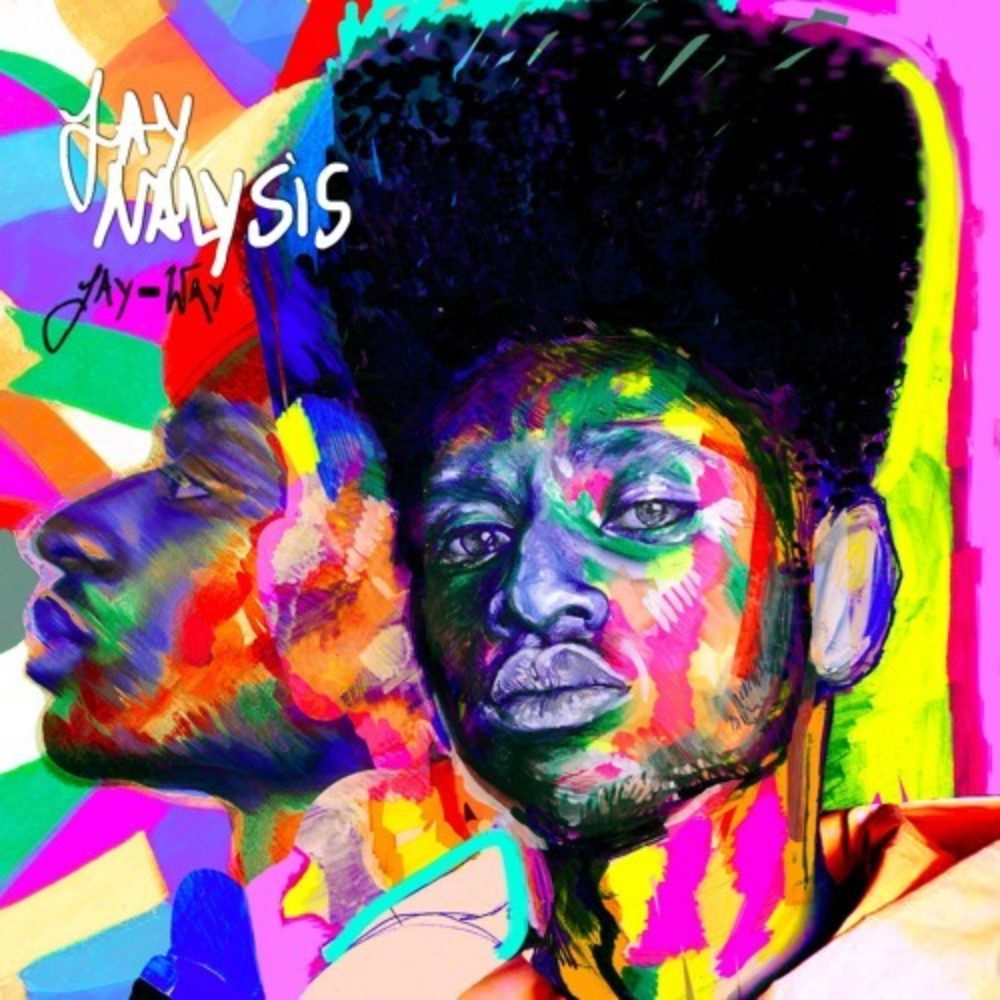
Is this EP, No I'm Not O.K., your first official release, or have you had others before?
I've had other releases. I dropped my first project Jaynalysis in 2015. At the time, I was working this job at a shake factory, the Nutrition Factory. When I dropped that project, I knew at that moment. I saw the contrast. I said, “I'm working a job, but at the same time, I'm actually putting out a project. This is what I need to do. Forget it. I'm never going to work a job again. I’m just going to sacrifice for music.” I started investing in music. So I dropped Jaynalysis in 2015, And then I dropped two projects after that. But this EP is the first project that I have dropped in partnership with a label.
So let's talk about it. Tell us about the title track, “No I'm Not O.K.”
At the time I wrote this project, I was having a hard time writing music that was joyful. I was going through a depression in 2018, and the first thing that helped me mentally was acknowledging it. So I started talking about it with close people. A lot of people didn't know how to help me. But it already helped me just to express what I was going through, what was going through my mind. So then that summer, when I started hitting the studio again, I couldn't come up with joyful songs because I wasn't in that space.
So I started writing songs and choruses that would kind of remind me that there's still hope. I wasn't thinking about the listener when I was writing, but more so coming up with songs to just uplift myself. Before I knew it, one song is finished, another song was finished, and I had a whole project just talking about this. That's how the EP came about.
This funk that you were in, was that about personal stuff? Or was it about the social and political environment you are in?
It was a combination of a lot of things. I didn't realize that the development of social media took such a toll on me mentally. That was one thing. I was very busy with comparing myself. At the time I was still living with my mom, and we were wrestling. “What you want to do with your life? Why are you still focusing on something that doesn't assure financial stability? Why don't you just go back to school or get a job? You can't be in this house just talking about how you're going to the studio.” So that was another thing I wrestled with. But also, it was just a low self-worth. I was comparing myself to other artists. So yeah, that kind of stuff. Plus I was in a relationship that was… I wouldn't say toxic, although it did become toxic. So there was just so much going on. And at the same time, I was trying to make steps career-wise.
That is a lot. It's interesting what you say about acknowledging depression—the idea that once you spoke about it, it kind of opened the floodgates and then there was more to say, and your creativity came back. That's very powerful. Let's talk about the song “Like Quintana.” The video you made for the remix is intriguing. Tell me about the song first, and then the video. I have to say. Your videos are visually great, and beautifully produced.
I appreciate that. That is one of my favorite aspects of being an artist is creating videos to enhance the song. “Like Quintana” is the last song off the EP. It's also the last song we made for the project. I would say it's a paradox. “Does life feel like a race? I feel like Quintana. But I'm going to make it to the top, I promised my mama. I put my head under the water, I feel like Nirvana. But I'm going to make it to the top, I promised my mama."
So I'm going through this thing, drowning in my thoughts, the negative thoughts. But I still promise to make it with my career. So it's kind of like a hopeful message. And with the video we wanted to illustrate that. You see me drowning in my thoughts, and then at the end of the video, you see me being above water. The whole video is basically me being in my mind. We wanted to illustrate that. And I hope it worked.
I think it did, and Flori del Pino is a wonderful singer. Tell me about her.
She's amazing, man. How this collaboration came about is around a year ago a fan sent me a voicemail telling me, "You and Flori del Pino would make a great record. Y’all would make a great fit." And I was like, "Man, she's dope." And he sent her the same message, and then he sent both of us a screenshot and so we started following each other. I was like, "He hit you up too?" "Yup. Hey. Let's do it." So a fan actually made the connection.
That's cool. Is Flori also in Amsterdam?
Not anymore. She is no longer in Amsterdam. She moved back to Spain. She is originally from Spain but she lived in Amsterdam for about three years. So, yeah, we already had the song “Like Quintana,” But I was like, "Hey, we might have to do a remix." She hopped on it. She came to the studio, wrote that joint in the studio. She taught me how to speak Spanish on the chorus. That's how it came about. She is amazing. I'm such a fan.
And then the video, quite a production.
Man, I'm telling you, bro. The production of this? This is one of the hardest videos to shoot. I mean the underwater scenes especially. She had a dress on that day, and man… Stuff was floating. So we had to do the take probably 30 times. Dive back into the water to do it again. Man, this is crazy.
You are doing this with the support of a label, so obviously they’re helping out funding the production. What is the label?
The label is Four Against Five. it's an imprint from Curb Records out of Nashville. They found me online in 2016. The A&R Joseph Ferlazi found me online and became an immediate fan. We built a relationship. He's like, "Yo, I want to come out to the Netherlands and come watch you perform." You know it was kind of to see if I could pull a crowd, if I could actually perform, put on a show.
Labels will do that.
So then he was like, "We need you to do the same thing at the label office.“ “What?" And he actually flew me out the week after, and we did it, and the next thing I know, there's interest.
He flew you to Nashville?
Yeah.
So tell me about "Coolie." That seems like a very different story.
Yeah. “Coolie.” That’s the first song that I made in lockdown. I made “Coolie” around May of last year. We were in a heavy lockdown back then. That was the first lockdown. I just wanted to go back to the basics. You know, people that have been following me since the beginning know that I'm actually a rap-head. All the pop hit stuff that you've heard. That's me just experimenting with stuff that I've always wanted to do, but the foundation has always been rap and hip-hop. So being trapped inside the house I thought let me just have fun with it again. And that's how the song came about. I really had fun making it.
What is the song saying?
The song says, "I'm just trying to buy my mama a crib." I just really wanted to let my audience know that, yes, you guys are being flooded with artists that rap about Rolexes, having multiple women, all that. But I just really wanted to remind my audience that my vision never changed, which is making my mom proud. It's kind of the same message I had on "Like Quintana,” where I said I'm going to make it to the top, I promised my mama. On “Coolie” I say, "I'm just trying to buy my mama a crib. That's the goal before checking out." So it's really just trying to not glorify materialism, and just focusing on making the people close to you proud.
Interesting. I know from interviewing many African artists that there's often a problem with parents not thinking that music is a good occupation for their son or daughter. How do your parents feel now? Is your mama proud now?
Yeah. My mom is my biggest fan and she was my biggest doubter.
That has to be a nice feeling.
Yeah. She actually left to visit family in Ghana recently. She's on a vacation to Ghana. She went like two weeks ago. But before she went, she said, "I need you to update my phone with new songs from you." All you see on her phone is Jay Way songs. When she called me, our first conversation was about how proud my uncle is of the songs that he heard from me. She was playing my songs in the car. Oh yeah, she's definitely a big fan. It wasn't always easy. I'll tell you that. We had fights about the career choice.
Well, that's very cool that she's come around so strongly. Have you been to Ghana yourself?
I am actually going to Ghana next month. I've been there I think three times. It's an amazing country.
It sure is. And it has a very interesting music scene. Hiplife, and all these variants of highlife and hip-hop that are happening there.
You know things. You're not new to this. I can tell.
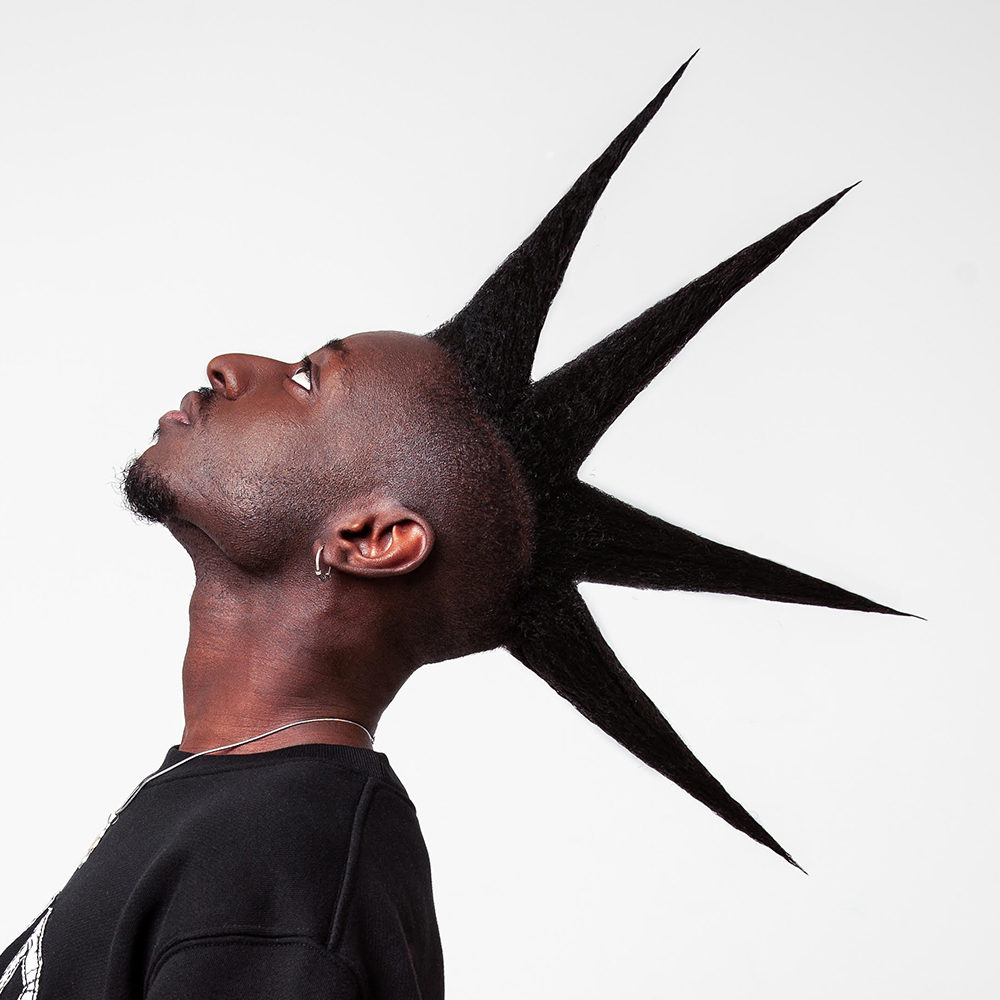
That's true. I've been following Ghanaian music a long time. When we were there in 2013, we really went deep. If you send me an email I will send you a link to the stuff we did.
That's crazy.
How closely do you follow the music scene there?
Like I told you, my daddy was a DJ. We grew up with all genres, especially hiplife and highlife. Daddy Lumba. One of my favorite artists is Kojo Antwi. And also, one of the hiplife artists whose name is Tik Tok. He came to the Netherlands to perform. I was 11 years old, and man. I was a fan boy. So, yeah, I know the scene. It's a big shift now. Everybody's doing the Afropop thing.
It's funny about that word, Afropop. When we started, it was a new word. And it just meant any modern music from Africa.
And there was world music.
Right. Everybody hated that term, and Afropop felt more descriptive. But a lot of African artists also didn't like being lumped into Afropop, because they had more specific names for their music: soukous, mbalax, highlife, juju, what have you. But now, ever since countries became technologically linked, and started really listening to each other’s music, it’s a new game. So then you get Afrobeats, a name that confuses everybody because of Fela’s Afrobeat. And now artists are embracing Afropop as an alternative to Afrobeats. What do you think they like about that term?
Man, there is a shift in the way that people view Africa. It makes sense. Because Afro is the new pop, if you think about it. It's the new pop culture. People used to not embrace Africa. People used to not embrace just being descendants from Africa. You would be laughed at. When I was in New York, when I had just moved there, I was playing at the court, and somebody took our basketball and I was asking around. I asked this one kid, and he was like, "Where you from? You from Africa?" He was so degrading. But now, with all the movement going on with the awareness, and Black Lives Matter, everybody's asking, "Where am I really from?" So, yeah, it makes sense. With all these developments. The Black Panthermovie. All these things. There's a shift in the world where there's more appreciation for Africa, and now the word Afropop makes sense.
Very interesting. I feel that shift, and it's about time. Well, you are coming on the scene at an interesting moment.
I know. Right?
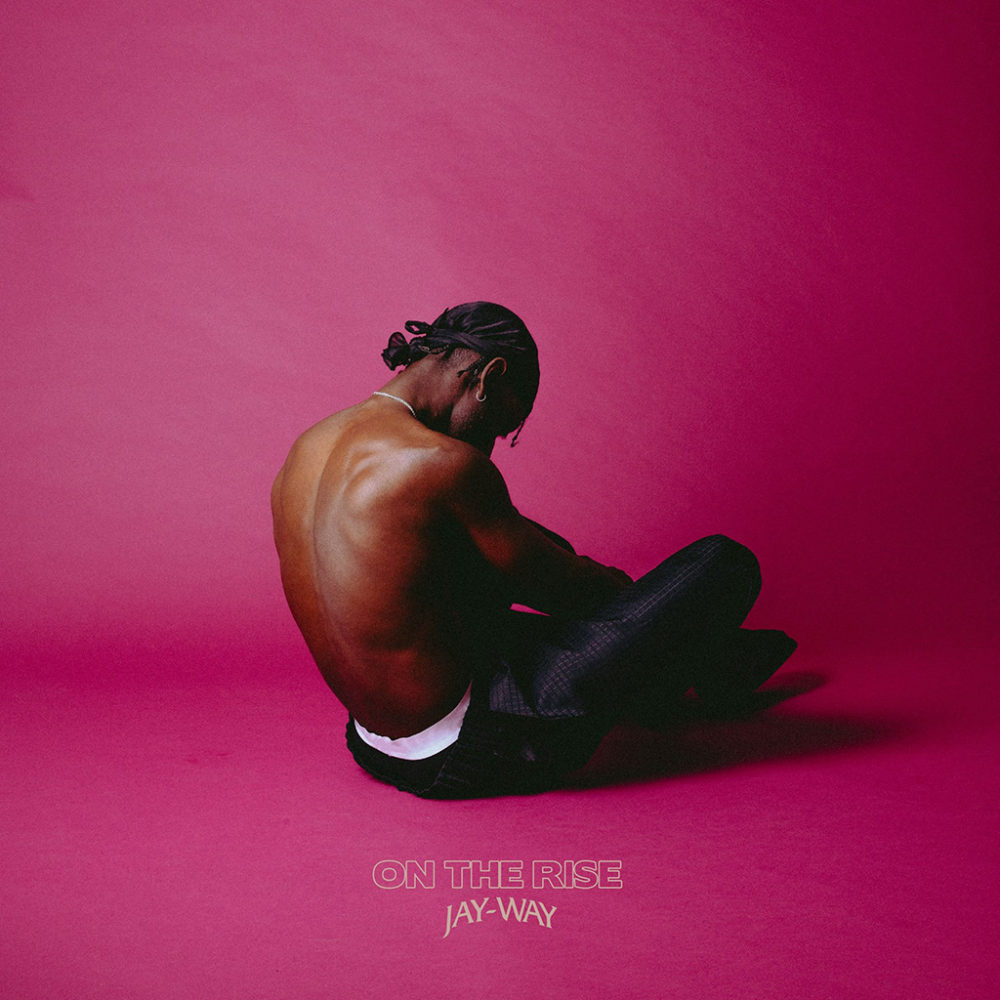
There is wind in the sails of African music. I think of this generation and their success compared with giants of the past. The top artists today get what they deserve. But I think of all the artists of the ’50s, ’60s, ’70s, ’80s. They struggled. They never got the kind of recognition that artists are getting now.
It's true. They definitely stayed under the radar. You had to really know the culture to know about some of those artists. I love that people can be worldwide successes now, like Burna Boy and Wizkid.
So true. It's very nice to meet you, Jay Way. I look forward to posting this interview and staying in touch with you.
I'm excited for it. And I'm also just happy to get talk to an interviewer who really knows his stuff.
Well, the truth is I know a lot more about African music than I do about hip-hop.
That's crazy.
It is. I've been to Africa some 25 times.
You've been to Africa more than I have.
Yeah, well, I’ve got a few years on you. You have time.
I haven't shared my age yet.
No problem man. You’ve said enough. Stay in touch. Let us know when you come here to perform.
I will do that.








